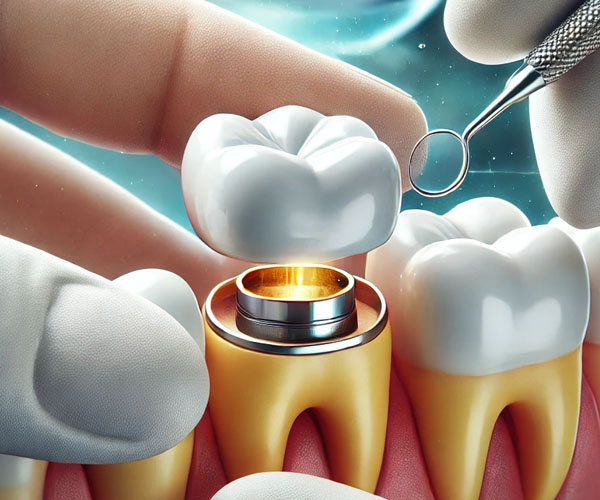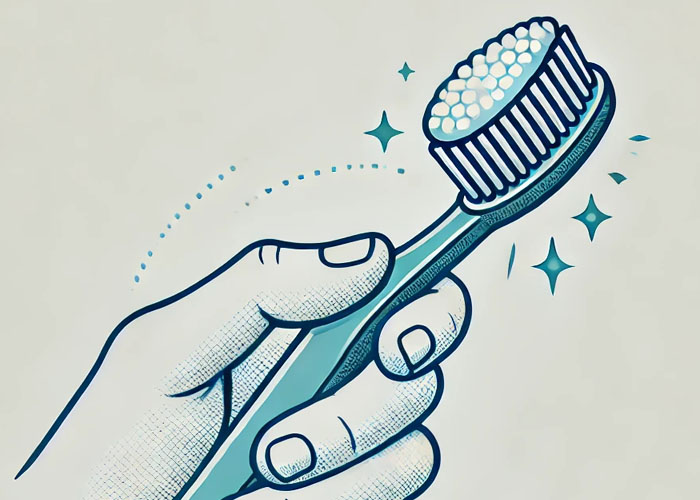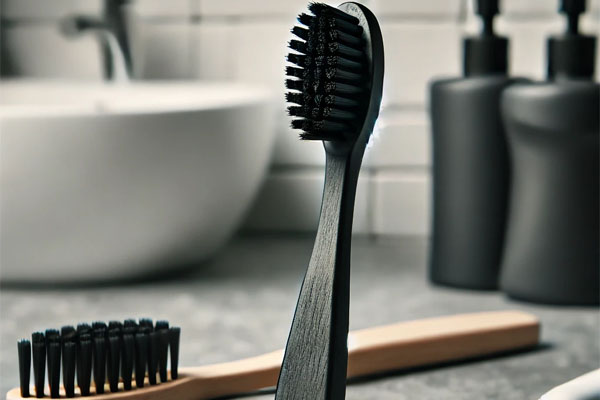Dental crowns are an excellent solution for restoring damaged teeth, improving your smile, and protecting your oral health. However, as with any dental procedure, there are some potential downsides of dental crowns that you should be aware of before making your decision. Knowing these possible issues can help you make an informed choice and work closely with your dentist to prevent or resolve any problems you might encounter. Let’s explore the potential downsides of dental crowns and how you can take proactive steps to minimize the risks while enjoying the benefits they offer.
What Are Dental Crowns?
A dental crown is a tooth-shaped cap that is placed over a damaged, decayed, or weakened tooth. It helps to restore the old damaged tooth in size, shape, color and full biting function. Crowns can be made from a variety of materials, including porcelain, metal, or ceramic, and are typically used when a tooth has been weakened by decay, a large filling, or a root canal. While crowns are generally effective at restoring the tooth’s function and aesthetics, it’s important to be aware of the potential downsides of dental crowns.

Potential Downsides of Dental Crowns
Dental crowns are an investment in your oral health, but they are not without their challenges. Understanding these potential downsides can help you make the best decision for your dental care.
1. Sensitivity After Placement
One of the most common potential downsides of dental crowns is increased sensitivity after the crown is placed. You might experience discomfort when biting down, chewing, or when consuming hot or cold foods and beverages. This sensitivity occurs because the tooth structure underneath the crown is still alive and can react to changes in temperature and pressure. While this sensitivity typically subsides after a few weeks, it can be uncomfortable during the initial period after the crown is placed.
What You Can Do:
If you experience sensitivity, talk to your dentist. In many cases, they can recommend toothpaste for sensitive teeth or adjust the crown’s fit to alleviate the discomfort. In some cases, a root canal may be necessary if the tooth’s nerve is too sensitive.
2. Crowns May Not Last Forever
Dental crowns are very sturdy, but hey don’t last a lifetime. Over time, crowns can wear down, become loose, or even crack. The average lifespan of a dental crown is around 10 to 15 years, but with proper care, some crowns can last even longer. It’s important to know that dental crowns, especially those made of materials like porcelain, can be more prone to wear and tear. Crowns may need to be replaced or repaired if they become damaged over time.
What You Can Do:
To extend the life of your dental crown, practice good oral hygiene by brushing and flossing daily. Avoid using your teeth to bite down on hard objects, like ice or pens, which can damage your crown. Regular dental checkups will also help your dentist monitor the condition of your crown and address any issues before they become problematic.
3. Potential for Poor Fit
A poorly fitted crown can cause discomfort, and in some cases, it can lead to additional dental problems. If the crown doesn’t fit snugly against the gumline, it can create a space where bacteria can collect, leading to decay or gum disease. A crown that’s too high can also cause issues with your bite, leading to jaw pain or discomfort when chewing.
What You Can Do:
Work closely with your dentist to ensure your crown is properly fitted. If you experience any discomfort after the crown is placed, contact your dentist to have it adjusted. A properly fitted crown should feel comfortable and function like a natural tooth.

4. Gum Irritation and Allergic Reactions
Some patients experience gum irritation after receiving a dental crown, especially in the days following the procedure. In rare cases, an allergic reaction to the materials used in the crown (such as metals) can occur. This can cause gum inflammation or other allergic symptoms. If you have a metal allergy, it’s important to inform your dentist so they can choose a crown material that’s safe for you.
What You Can Do:
If you experience gum irritation or suspect an allergic reaction, contact your dentist immediately. They can help determine if the issue is related to the crown’s material or if it’s due to the placement process. Choosing materials like all-ceramic or porcelain can reduce the risk of an allergic reaction.
5. Risk of Decay Under the Crown
While dental crowns cover and protect the visible part of your tooth, the underlying tooth structure is still vulnerable to decay. If bacteria accumulate at the base of the crown, they can cause decay, leading to the need for further dental work, including crown replacement or even tooth extraction.
What You Can Do:
To prevent decay under your dental crown, it’s essential to maintain excellent oral hygiene. Brush twice a day, floss around the crown, and visit your dentist for regular cleanings and exams. Your dentist can detect early signs of decay and recommend treatment before the issue becomes severe.
Are Dental Crowns Still Worth It?
Despite the potential downsides of dental crowns, they remain one of the most effective solutions for restoring damaged teeth. The benefits of dental crowns often outweigh the risks, especially when you’re working with an experienced dentist who can ensure a proper fit and help you maintain your crown for the long term. Dental crowns can:
- Restore the function of a damaged tooth
- Improve the appearance of your smile
- Protect a weakened tooth from further damage
- Provide long-lasting durability
By staying informed about the potential downsides of dental crowns and taking proactive steps to care for them, you can enjoy the benefits of a restored smile without worry.
How to Minimize the Potential Downsides of Dental Crowns
The best way to minimize the risks associated with dental crowns is to work closely with your dentist. Follow these tips to ensure your crown remains in top condition:
- Choose the right material: Your dentist can recommend the best material for your crown based on your needs, whether it’s porcelain for a natural look or metal for durability.
- Practice good oral hygiene: Brush and floss regularly, and avoid using your teeth to open packages or bite down on hard objects.
- Visit your dentist regularly: Routine checkups allow your dentist to monitor your crown and catch any issues early.
- Report any discomfort immediately: If you experience sensitivity, pain, or discomfort, don’t hesitate to contact your dentist for an adjustment.
Conclusion: Dental Crowns Can Be a Great Investment—With the Right Care
While there are potential downsides of dental crowns, they are often outweighed by the many benefits they provide. With proper care, crowns can restore the function and appearance of damaged teeth, giving you a beautiful, healthy smile for years to come. If you’re considering a dental crown or have concerns about your existing crown, talk to your dentist about how to minimize the risks and enjoy the full benefits of this dental restoration.

